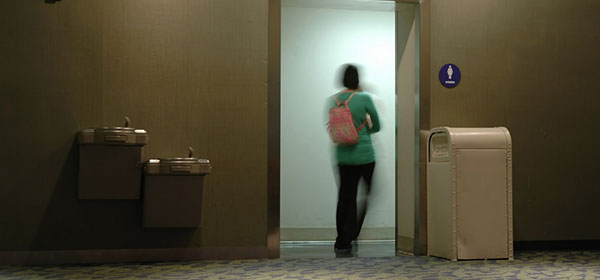I play golf regularly with a chap who refuses to eat anything before he hits off. He says he’s too worried about the stuff he puts in wanting to come out when he’s on the course and a long way from a toilet.
He says he suffers from irritable bowel syndrome (IBS) and that he has done since his mid-20s. He’s now nearly 70, so that’s a lot of inconvenience.
As a boy, he was probably diagnosed with a ‘spastic colon’ because that’s what it was called. Irritable bowel certainly sounds less dramatic, but whatever you call it, it can be life changing, and not in a pleasant way.
Statistics suggest that about one in five Australians experience, or have experienced, IBS at some stage in their life.
Many can trace it back to something they’ve eaten, and by eliminating that thing, or things, from their diet, they can virtually eliminate the problem.
Exactly what causes such adverse reactions is uncertain. While for some it will be dietary, for others it can be related to stress levels.
For many, it can arise through an infection in the bowel, and even when such infections have been cured, disruptions to the nerve functions in the bowel can cause the condition to persist for long periods after.
While IBS isn’t linked to serious bowel conditions such as cancer or colitis, it can be, at best, an inconvenience and, at worst, humiliating and distressing.
Symptoms include abdominal pain, alternating diarrhoea and constipation, bloating and nausea, and it’s unusual that any of these symptoms will be experienced for the first time in anyone over 40.
For my golfing mate, he has only ever been able to link his IBS to rich foods and, more often than not, after dinner. That’s when the urge to go to the toilet reaches levels that can’t be resisted.
The most common dietary trigger relates to dairy and processed foods, while low-fibre diets can cause constipation.
Coeliac disease – an immune intolerance to the gluten in wheat and other grains – may produce many of the same symptoms as IBS, while lactose intolerance may produce bloating, cramps and diarrhoea.
My golfing friend says he has never been to a doctor about his condition. It’s a ‘self-diagnosis’ and he says he can live with it.
That’s not smart. What he should do is see a doctor, have a full medical check, including blood and stool tests, and tests for coeliac disease. A colonoscopy can also reveal certain IBS conditions.
IBS cannot be cured with medication or special diets. The best preventative measure is to identify problem foods and avoid them. If this fails, notify your GP or, better still, find a medico who specialises in IBS, because there are many other steps, some medicinal and some dietary, that can be taken to make living with IBS more comfortable.
Do you suffer from irritable bowel syndrome? Have you found a way to keep it under control?
Health disclaimer: This article contains general information about health issues and is not advice. For health advice, consult your medical practitioner.
Related articles:
Toilet tips for travellers in a hurry
Osteoarthritis explained
Dementia prevention starts when?

